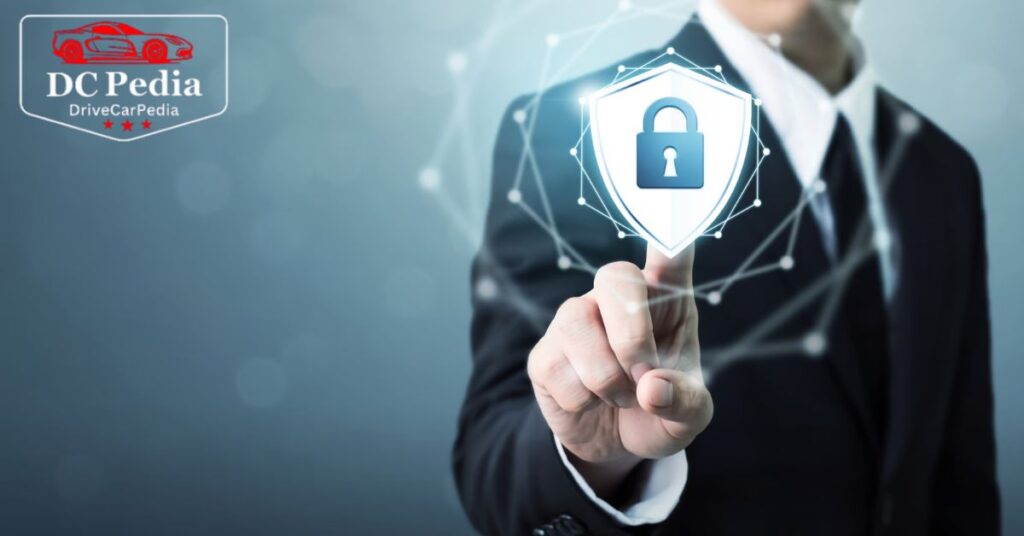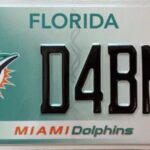Let’s face it – criminals will use any tactics they can to commit fraud, cover their tracks after a crime, or rack up fines in someone else’s name. A common target? Vehicle registration and license plates. But what if they only get their hands on your license plate number instead of the actual plate? Does that still put you at risk of identity theft and fraud?
The truth is, most people can’t access your sensitive information with just your license plate number. Don’t ignore this potential threat. In the wrong hands, even your license plate digits and frames could provide information scammers could use to target, impersonate, or track you.
In this comprehensive guide, you’ll learn exactly what con artists might attempt with your plate number and the steps you can take to protect yourself. It’s important to understand both the realistic dangers and what’s simply fear-mongering. By the end, you’ll have a clear picture of the identity theft risks associated with license plates and practical tips to safeguard your details.
What Information Can Someone Get From Your License Plate Number?
Think about it – your license plate is visible to anyone who sees your car or a photo of it. Simply knowing those numbers and letters won’t give scam artists access to any real sensitive data about you.
That’s because the Driver’s Privacy Protection Act (DPPA) prevents unauthorized people from accessing personal information tied to license plates or vehicle records. This data includes your Social Security number, name and address, driver’s license number, and other personally identifiable information.
The DPPA exists to safeguard drivers’ privacy and provides strong legal protection. Trying to obtain driver information through false pretenses is flat-out illegal. Violators face serious consequences like criminal charges, hefty fines, potential civil lawsuits, and more.
So what could someone realistically glean from just your plate number? Let’s take a look:
While the DPPA shields your most sensitive data, there is still some vehicle information that could potentially be shared with the public in limited circumstances. This includes:
- Vehicle make, model, and year: In some states, third-party license plate lookup services can provide basic details about the make, model, and year of a vehicle.
- Vehicle Identification Number (VIN): This unique 17-character code assigned to every vehicle could show up in some license plate lookup searches. The VIN can reveal details like where the car was manufactured and its original features.
- Home address: Private investigators may occasionally access home addresses through certain vehicle registration search services, but this access is restricted by legal regulations and only granted in specific circumstances.
- Fuel economy, engine specs: Some license plate lookup services display information about a vehicle’s fuel efficiency ratings or engine capacity.
- Natural damage history: Vehicle history reports offered by some lookup services could reveal if a car has sustained damage from natural disasters like hurricanes or floods. While limited, this information could potentially aid someone trying to make false insurance claims.
- Mileage, and maintenance records: With certain lookup tools, you can find data on a vehicle’s current mileage and maintenance history to assess its overall condition and whether any major issues need repair.
- Driver criminal history: Law enforcement has the ability to run license plate checks to access reports of stolen vehicles, the registered owner’s criminal convictions, prior traffic violations, etc. This sensitive information is not accessible to the public via license plate lookups or through the Department of Motor Vehicles (DMV).
- Accident/repossession history: Certain vehicle registration search services provide details on whether a car has been involved in a collision, a hit-and-run, or a repossession due to failure to make payments.
It’s important to note that the DPPA imposes strict limitations on what data can be released to the general public. Most of the above information is available only through restricted channels for approved parties like law enforcement or licensed investigators working on specific cases.
The bottom line? While some of your vehicle information could potentially be shared, your most sensitive personal and financial details remain protected. Any information tied to your identity does raise risks of fraud and identity theft.
With just a license plate number, regularly monitoring your financial accounts, credit reports, and identity records is crucial for catching any suspicious activity early. That’s where an award-winning identity theft protection app like Aura can make all the difference. More on that shortly.
When Can Someone Legally Run Your License Plate Number?

You may have heard the term running plates and wondered what exactly that means. Simply put, it refers to looking up information tied to a license plate number.
The DPPA strictly forbids the DMV and third parties from disclosing personally identifiable information (PII) – like your home address, license numbers, etc. – without the vehicle owner’s explicit consent. Only certain authorized parties can legally view that sensitive data under controlled circumstances.
Running plates is a standard and legitimate practice in many situations – like insurance providers handling claims, private investigators conducting background checks, or law enforcement agencies investigating crimes.
The level of access to information connected to a license plate depends on who is doing the checking and for what purpose:
- Police: Law enforcement officers have wide access to view personal details, contact information, insurance records, criminal histories, and more – but only when they have a valid and documented reason for an investigation. They cannot legally share any of this data with unauthorized third parties.
- DMV employees: DMV staff must follow the strict guidelines of the DPPA and applicable state regulations. They can only release information from motor vehicle records for a limited set of approved purposes like vehicle safety research, theft investigations, or matters related to the operation of motor vehicles.
- Private investigators (PIs): Licensed private investigators working legitimate cases could potentially look up certain public records connected to license plates – including home addresses, property holdings, criminal records, financial troubles, etc. But they need established legal justification to access this information.
- License plate lookup sites: Public-facing license plate lookup websites and services cannot directly access DMV records. They can only search for information from other public records, databases, etc. Some third-party lookup services are run by licensed PIs, which gives them more access than the general public.
So while running plates is very commonplace for authorities and certain restricted businesses, there are clear legal boundaries in place. Trying to obtain personal driver information through false representations is a violation that can result in severe penalties.
Does that mean your license plate is secure? Not exactly. There are still some concerning ways criminals could potentially abuse plate data, which we’ll explore next.
The 5 Real Risks of What Criminals Could Do With Your License Plate Number
It’s highly unlikely that fraudsters would be able to directly steal your identity by accessing your personal information with just a license plate number. Those privacy protections create a strong deterrent.
Malicious individuals could still try to leverage a plate number in concerning ways, often by combining it with other unscrupulous tactics:
1. Use your license plate number in a phishing scam
Phishing is when scammers use fraudulent emails, text messages, phone calls, and other communications to trick people into sharing sensitive data or transferring money. If a criminal has your license plate number and contact information, they could use these details to make their phishing attempts seem much more believable and urgent.
For example, they may call you pretending to be a DMV official and claim you owe outstanding fines or fees for alleged traffic violations. They might even threaten that there will be a warrant issued for your arrest if you don’t pay immediately.
Using specific details about your vehicle’s license plate creates a sense of legitimacy that could panic you into complying with the scammer’s demands before you can rationally assess the situation.
Phishing scams rely on creating a sense of urgency and anxiety to cloud your judgment. Referencing license plate numbers and personal details makes their ruse seem more authentic. – Sarah Johnson, Digital Security Expert
2. Impersonate you at the DMV to steal your sensitive information
Through social engineering tactics, scammers could use your license plate number to impersonate you with DMV staff and attempt to access more of your records.
They may call or email DMV offices, claiming to have lost paperwork or need to update their license plate registration. By providing your legitimate plate number upfront, they could trick staff into probing for more sensitive details like your home address, driver’s license info, or other identifying data.
Scammers are constantly looking for ways to breach companies’ defenses and DMVs aren’t immune. Awareness of these devious impersonation tactics is key to combating them.
3. Create fake license plates using your stolen number (number plate cloning)
An extremely concerning tactic is number plate cloning – where criminals steal someone’s license plate registration number and reproduce it illegally on another vehicle. They can then use your cloned plates to conceal their own identities while committing crimes or racking up traffic violations.
Imagine opening your mailbox one day to find a letter stating that due to multiple unpaid tickets and criminal reports, you must appear in court. You later realize all those infractions were connected to a car with your license plate number affixed to it – but it wasn’t even your vehicle.
Dealing with the legal and financial fallout from number plate cloning can be incredibly stressful and costly if you don’t catch it right away. In many cases, victims have to pay fees for replacement license plates, hire a lawyer to verify the vehicle registration wasn’t theirs, and more.
4. Find out your home address and track your private movements
Some abuse the limited data available through online license plate scanning services and lookups to target victims further. If criminals know where the owner of a particular license plate lives and the general geographic area they’ve driven recently, it provides potential openings for more personalized scams.
They could use the address information to run various mail fraud schemes or even stake out your home and vehicle in real life. Scammers thrive on gathering more and more personal details to exploit.
A bad actor aware of your daily habits and routes could begin monitoring your movements by exploiting vulnerabilities in connected car technologies. The possibilities extend beyond just tracking your car’s location through hacking – they include terrifying scenarios like remotely disabling or even taking control of your vehicle as part of a broader criminal plot.
While this may seem like scenes out of a movie, recent reports have highlighted serious security flaws in popular vehicle tracking devices that could enable exactly these sorts of threats.
5. Surveillance and control of your vehicle via hacking
As vehicles become increasingly connected via in-car technologies, smart apps, GPS tracking, and the Internet of Things (IoT), they open up alarming new possibilities for tech-savvy criminals who can identify and exploit software vulnerabilities.
If a skilled hacker knows your license plate number, that could make you a more viable target. In a worst-case scenario, they may try to interfere with the cybersecurity of your car’s systems to track its real-time location and movements or even disable critical functions remotely while you’re on the road.
Reports in 2022 revealed serious flaws in popular GPS tracking hardware that could theoretically allow attackers to stop vehicles in their tracks or even override driving controls – a terrifying prospect.
While the capabilities of today’s hackers and the sophistication of cybercrime may seem futuristic, these risks demonstrate why it’s so crucial to take steps to safeguard our data and devices on all fronts. Criminals are constantly finding new ways to victimize people.
So while a license plate alone likely can’t directly expose you to identity fraud under current legal structures, it’s still an important data point to protect. Because if scammers can leverage that information as part of a broader scheme, it creates very real dangers.
Next, we’ll look at the practicality and legality of trying to obscure or hide your plates as a precaution.
Can You Legally Hide or Obscure Your License Plate Number?
Given the privacy and personal security concerns around license plates, you may wonder – Can I just cover up or obscure my plate to prevent potential issues? Unfortunately, the answer is no.
It is against the law in all 50 U.S. states and most countries to intentionally obscure or hide your vehicle’s license plate in a way that makes the numbers and letters illegible. Both vehicle owners and drivers can face citations and fines for violations.
Most regions prohibit the usage of any coverings, sprays, obstructions, or other devices that could make a license plate unreadable – even products like acrylic license plate covers, tinted license plate covers, or license plate sprays that physically block part of the plate.
The reason for these laws is understandable. License plates are a key part of being able to identify vehicles for enforcement of traffic laws, vehicle registration requirements, criminal investigations, and more. If they were easily obscured, it would undermine the system.
A major exception is where it is both legal and advisable to hide or blur your license plate number: when sharing photos of your vehicle online. This includes posting photos on social media sites, online listings, forums, etc.
Blurring or editing out the plate numbers before uploading vehicle images is an important precaution to prevent those details from being exposed and abused. Many blurring tools allow you to selectively obscure just the plates while leaving the rest of the image intact.
So while obscuring plates on your actual vehicle is a violation, making this quick edit is easy and eliminates potential risks. It’s something every driver should do to protect their privacy and vehicle identity information online.
Does this mean license plates pose a major identity theft risk? Not necessarily, thanks to legislation like the DPPA that restricts access to DMV records and driver data. it does pay to be vigilant and take proactive steps to secure your identity and assets.
This brings us to our final section – practical tips everyone should follow to protect against evolving scammer tactics that could leverage license plates and other personal information maliciously.
The Bottom Line: How to Secure Your Identity

While license plate numbers alone pose limited direct identity theft risk thanks to strong consumer privacy regulations like the DPPA, it’s clear criminals will try to leverage this data point in combination with other unscrupulous tactics when possible.
Whether it’s crafting devious phishing scams, impersonating you, number plate cloning, vehicle surveillance, or abuse of technology vulnerabilities, scammers will stop at nothing.
That’s why taking a holistic, 360-degree approach to securing your identity is so crucial in today’s digital world. Here are 7 key tips to lock down your personal data and information across the board:
- Limit personal info shared online – Don’t overshare details on social media, web forums, etc. that could aid scammers in targeting or impersonating you. Carefully review your privacy settings and connections.
- Update social media privacy settings – Be cautious of unsolicited friend requests, direct messages, or emails from strangers. Adjust your settings to restrict what info is publicly viewable.
- Use strong, unique passwords for all accounts – Don’t reuse simple passwords like pet names or birthdays that are easy to guess. Create complex passphrases using combinations of letters, numbers, and symbols.
- Enable two-factor authentication everywhere – Add a second verification method like biometrics (fingerprint, face ID) or an authenticator app in addition to your password for extra security.
- Be extremely wary of links in unsolicited emails or messages – If you get a random message or email claiming to be from a company, search for and contact that business through their official website and channels to verify.
- Keep all software and devices updated – Turn on automatic updates so you always get the latest security patches and fixes to protect against newly discovered hacking vulnerabilities.
- Consider a comprehensive identity theft protection service – Solutions like Aura provide real-time monitoring of dark web and data breach activity that targets your info. They also offer insurance policies up to $5 million to cover you in the event of identity theft losses. It’s peace of mind.
License plate numbers alone pose a relatively limited identity theft risk thanks to privacy laws. But scammers are continually evolving their tactics. With basic precautions like these, you can secure your identity and finances from harm.



